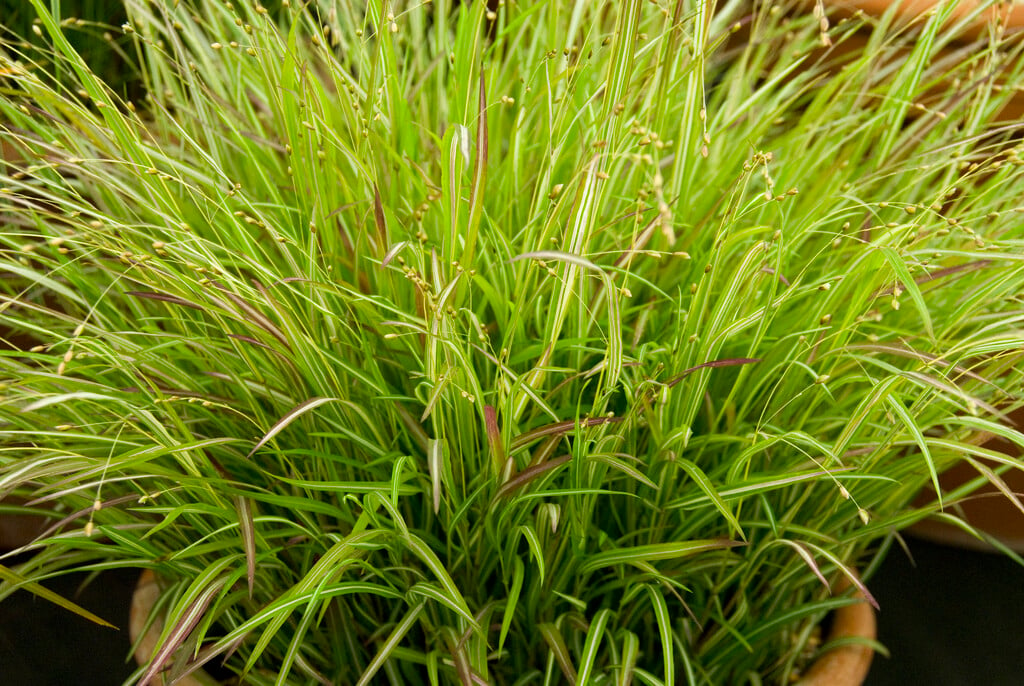Melica uniflora
wood melick
A delicate looking, creeping perennial grass with bright green deciduous foliage, native to the UK. Branching purple flower stems with brown flowers and yellow stamens appear from June to July
Size
Ultimate height
0.1–0.5 metresTime to ultimate height
2–5 yearsUltimate spread
0.5–1 metresGrowing conditions
Moisture
Moist but well–drained, Well–drainedpH
Alkaline, NeutralColour & scent
| Stem | Flower | Foliage | Fruit | |
| Spring | Green | |||
|---|---|---|---|---|
| Summer | Brown Yellow | Green | ||
| Autumn | Green | |||
| Winter |
Position
- Full shade
- Partial shade
Aspect
East–facing or North–facing or West–facing
Exposure
Exposed or Sheltered Hardiness
H7Botanical details
- Family
- Poaceae
- Native to GB / Ireland
- Yes
- Foliage
- Deciduous
- Habit
- Matforming, Spreading branched
- Genus
Melica are deciduous, clump-forming perennial grasses with soft, linear leaves and arching stems bearing narrow panicles of flattened flowering spikelets in summer
- Name status
Correct
- Plant range
- Europe, N Africa, SW Asia
How to grow
Cultivation
Ideal for a partly shaded position such as the edge of a woodland but will tolerate full shade. Avoid waterlogged soil, especially in winter. Thrives in a dryish alkaline soil
Propagation
Propagate by seed or division
Suggested planting locations and garden types
- City and courtyard gardens
- Patio and container plants
- Cottage and informal garden
- Low Maintenance
- Flower borders and beds
Pruning
Cut back previous year's growth in February
Pests
Generally pest-free
Diseases
Generally disease-free
Love gardening
Sign up to receive regular gardening tips, inspiration, offers and more
View our Privacy Policy
Get involved
The Royal Horticultural Society is the UK’s leading gardening charity. We aim to enrich everyone’s life through plants, and make the UK a greener and more beautiful place.
